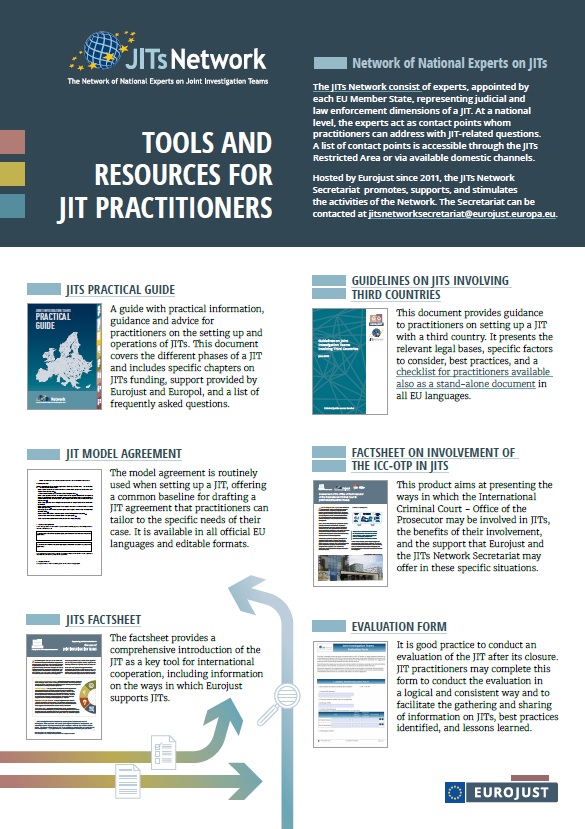In accordance with Council Document 11037/05, the Network of National Experts on Joint Investigation Teams (the JITs Network) was established in 2005 to facilitate the work of practitioners, as well as to encourage the use of JITs and contribute to the sharing of experience and best practice in using this tool.
Since 2005, the JITs Network Secretariat has organised annual meetings of the JITs Network with support from Eurojust and Europol. The meetings provide a forum for JIT practitioners from the Member States and relevant EU institutions to share experience and challenges and propose solutions from a practitioner’s point of view.
Eurojust promotes and supports the activities of the JITs Network by providing practical and logistical support, including hosting the annual meetings of the JITs Network at its premises in The Hague, as well as hosting the Secretariat.
The JIT evaluation form (update 16/2/2021) facilitates the gathering and sharing of information on JITs operations. The form is one of the deliverables of the JIT Evaluation Project.

